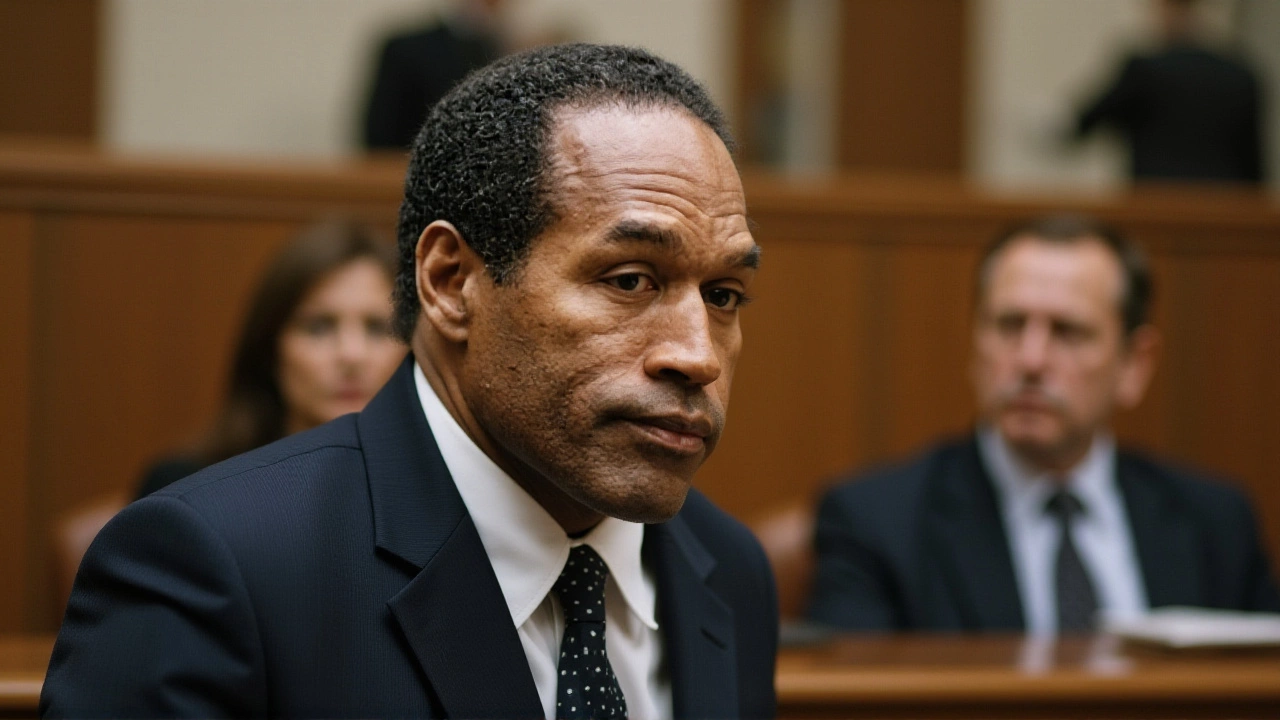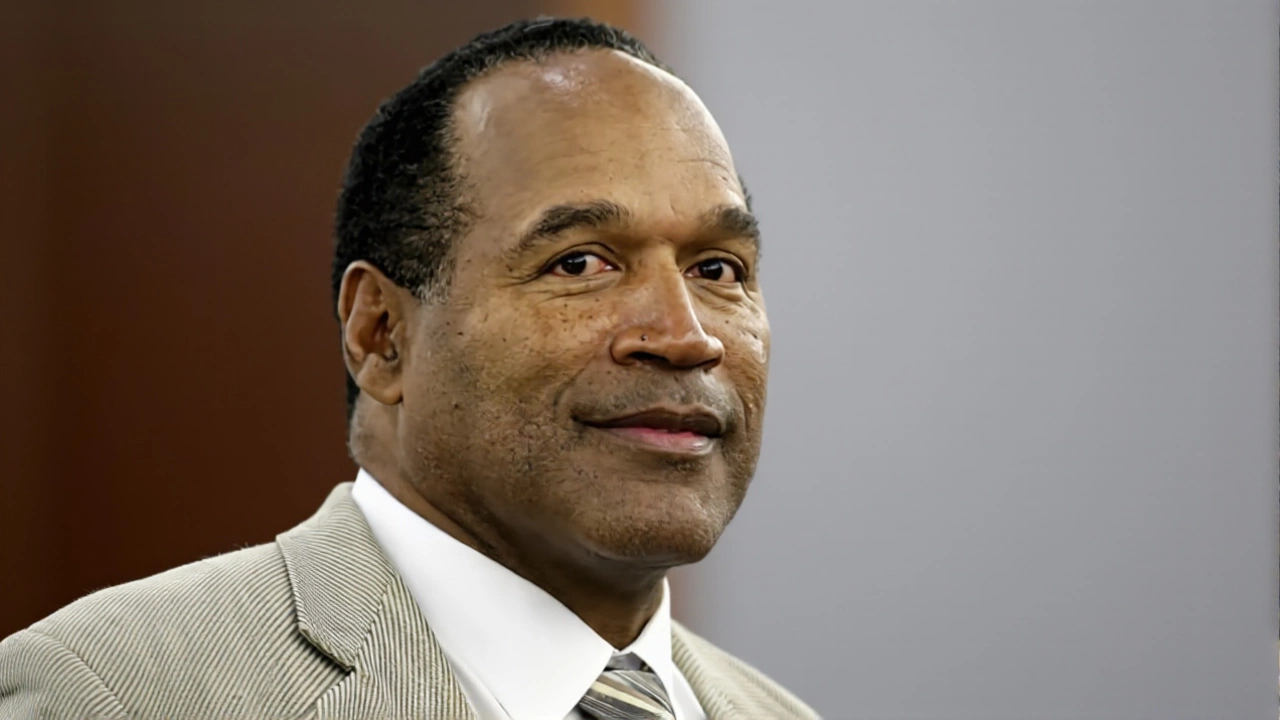O.J. Simpson Estate Pays $58M to Ron Goldman’s Father After 28-Year Legal Battle

- Nov, 21 2025
- 0 Comments
- Daxton Callister
For nearly three decades, Fred Goldman refused to let the world forget what happened on June 12, 1994. On November 18, 2025, his persistence finally paid off — not in justice, not in closure, but in $58 million. The estate of Orenthal James Simpson, who died in April 2024, formally accepted a claim filed by Fred Goldman, father of Ronald Lyle Goldman, one of the two victims brutally stabbed to death outside Nicole Brown Simpson’s Brentwood home. The settlement, confirmed by the Los Angeles Times and the American Bar Association Journal, ends a legal chase that outlasted Simpson’s fame, his prison stint, and even his life.
The Judgment That Never Paid Off
After Simpson’s acquittal in the 1995 criminal trial — a spectacle that gripped the nation — Fred Goldman didn’t give up. He turned to civil court. In 1997, a jury in the Southern District of California found Simpson liable for the wrongful deaths of Ron Goldman and Nicole Brown Simpson. The judgment: $33.5 million. That was the easy part. Collecting it? That became a nightmare.
By 2015, the Goldman family had received just $132,000. How? Mostly from the sale of Simpson’s memoir, If I Did It, which a court forced him to surrender. The rest? Vanished. Simpson’s NFL pension — estimated at $25,000 a month — was locked away in a trust shielded from creditors. His real estate? Transferred. His royalties? Redirected. He didn’t hide money under a mattress; he buried it in legal structures so complex even seasoned attorneys struggled to trace them.
The Attorney Who Never Let Go
David J. Cook, the Goldman family’s lead attorney at Glaser Weil Fink Howard Avchen & Shapiro LLP in Los Angeles, called the settlement "a long-overdue reckoning." He explained that the original $33.5 million had ballooned to over $100 million with interest — compounded annually, legally, relentlessly. But the estate had always argued it had nothing left to pay. That changed when Cook’s team filed a petition to remove the trustee managing Simpson’s assets. The move triggered a lis pendens — a legal notice that clouded the title of any property tied to the estate. Suddenly, beneficiaries who’d been quietly enjoying Simpson’s wealth realized their inheritances could be seized.
"It wasn’t about greed," Cook told the Los Angeles Times. "It was about principle. If you’re allowed to kill two people, walk away scot-free in criminal court, then hide behind trusts and pensions — what does that say about our system?"

Why Now? The Estate’s Calculated Surrender
Simpson died at 76, a broken man living in Nevada, his legacy reduced to tabloid headlines and bitter family feuds. His estate, administered in Clark County, Nevada, had been quietly managed by a small team of attorneys and financial advisors. For years, they resisted any meaningful payout. But with the lis pendens now active and the threat of asset freezes looming, the estate’s trustees made a cold calculation: pay $58 million now, or risk losing everything later — including potential clawbacks from trusts.
The $58 million isn’t the full $100 million-plus owed. But it’s 73% more than the original judgment — and more than 400 times what the Goldmans had collected in 18 years. It’s also a strategic compromise. The estate likely avoided a protracted legal battle that could have forced public disclosure of hidden assets. The Goldmans, meanwhile, got what no court had ever delivered: a real, verifiable sum.
The Ripple Effect
This case isn’t just about two families. It’s a landmark in judgment enforcement. High-profile defendants have long used trusts, pensions, and offshore structures to evade liability. Simpson was the most famous example. But now, courts and creditors have a new playbook: lis pendens against estate trustees. Legal scholars say this could change how estates are managed after death — especially when the deceased was found liable in civil court.
"This sets a precedent," said Professor Elena Ruiz, a legal ethics expert at USC. "If you’re found liable for murder, your wealth shouldn’t be untouchable just because you’re dead. The law can’t be so easily gamed." The Ron Goldman Foundation for Justice, founded by Fred Goldman in Los Angeles, plans to use the settlement to expand its advocacy work — funding legal aid for families of victims who can’t afford to chase justice.

What Comes Next?
No timeline has been set for the $58 million disbursement. But estate administrators have confirmed the funds will be paid from liquidated assets — likely real estate and royalties. The Goldmans say they won’t spend it on luxury. They’ll invest it in the foundation, and in memory.
"Ron didn’t die for money," Fred Goldman told reporters outside the courthouse. "But this? This is for him. For Nicole. For every family who’s been told, ‘It’s just not worth it.’ It is worth it." The case may be closed. But the message? It’s just beginning.
Frequently Asked Questions
Why did it take 28 years to get this settlement?
Despite a $33.5 million civil judgment in 1997, Fred Goldman collected only $132,000 by 2015 because O.J. Simpson shielded his assets through trusts, NFL pension protections, and complex financial structures. Legal tools like lis pendens and trustee removal petitions finally pressured the estate into negotiating after Simpson’s death in 2024.
How is the $58 million different from the original $33.5 million judgment?
The $58 million includes accrued interest — pushing the total debt past $100 million — but represents a negotiated settlement. It’s 73% higher than the original award, reflecting the legal and financial pressure applied over decades. The estate paid less than the full amount to avoid further asset exposure and public scrutiny.
Why couldn’t the Goldmans collect Simpson’s NFL pension?
NFL pensions are protected under federal law from creditor claims, even for those convicted or found liable for crimes. Simpson’s pension — estimated at $25,000 monthly — was placed in a trust that legally insulated it from the civil judgment. This protection, meant for retirees, became a shield for a man found responsible for two murders.
What role did the lis pendens play in this settlement?
The lis pendens — a legal notice that a property claim is pending — was filed after the Goldmans petitioned to remove Simpson’s estate trustee. This threatened to freeze or seize assets tied to the estate, including real estate and royalties. Facing the risk of total asset exposure, the estate chose to settle rather than risk losing everything in court.
Is this settlement final? Can the estate be forced to pay more later?
Yes, the settlement is legally binding and final. Once the $58 million is paid, the Goldmans have agreed to release all future claims against the Simpson estate. However, if undisclosed assets are later discovered — such as hidden bank accounts or offshore holdings — the Goldmans could potentially pursue those separately, though not under the original judgment.
How will the Goldman family use the $58 million?
Fred Goldman and the Ron Goldman Foundation for Justice plan to use the funds to support families of homicide victims who lack legal resources. The foundation will expand legal aid, fund victim advocacy programs, and possibly create a scholarship in Ron Goldman’s name — turning a tragedy into a tool for systemic change.